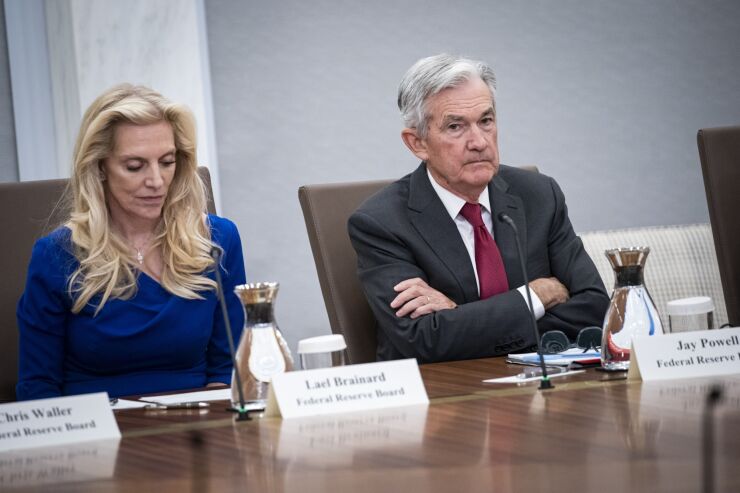The Federal Reserve is weighing whether to publish a list of institutions that have accounts at its 12 regional reserve banks.
The Fed Board of Governors Friday announced that it is seeking public comment on a proposal to require reserve banks to submit a quarterly report on the depositories in their district that have been granted so-called master accounts, which provide access to the Fed's various payment services.
The information on master account holders would then be compiled into a single list published on the Federal Reserve System website, according to a notice filed with the Federal Register on Friday.

The Fed is also considering whether to publicize the names of groups that have submitted applications for master accounts, the dates on which they applied and the status of their applications.
"Today's proposal will enhance transparency to the public by periodically publishing a comprehensive list of financial institutions that have access to Federal Reserve accounts and payment services," Fed Vice Chair Lael Brainard said in a statement. "I look forward to getting feedback on this proposal for enhanced transparency."
Historically, the Fed has made little information about master account related information available to the public, because it has deemed that to be confidential business information.
In a statement released Friday afternoon, the Fed said the decision to consider a more public-facing approach to master account management stems from
The Fed is also under pressure from members of Congress to provide more clarity into the master account granting process.
For months, Sen. Pat Toomey, R-Pa., the ranking member of the Senate Banking Committee, has been
The issue first surfaced during the

The Fed's master account granting process has also been called into question in
In its claim, Custodia argues that as a state-chartered depository institution, it has a right to an account or at least a timely response to application, as called for by the Administrative Procedure Act.
The Fed has rebuffed these assertions, arguing that Custodia's business model presents new risks to the federal banking system that need to be evaluated in due time. It also argues that the reserve banks, which have discretion over which institutions are granted accounts, are not subject to the APA.
After a federal court judge declined to grant the
In its proposal to make master account information publicly available, the Fed has asked the public to respond to several questions, including how frequently the list should be published and what steps should be taken to ensure confidential information is not disclosed.
The public has 60 days to respond to the request.





